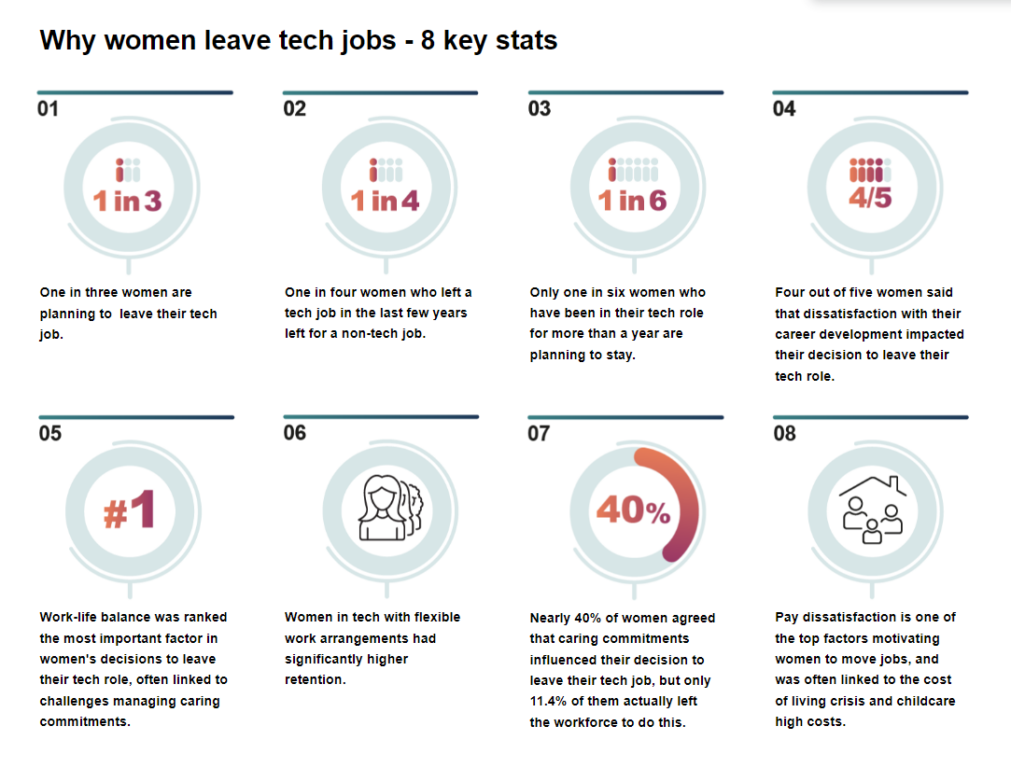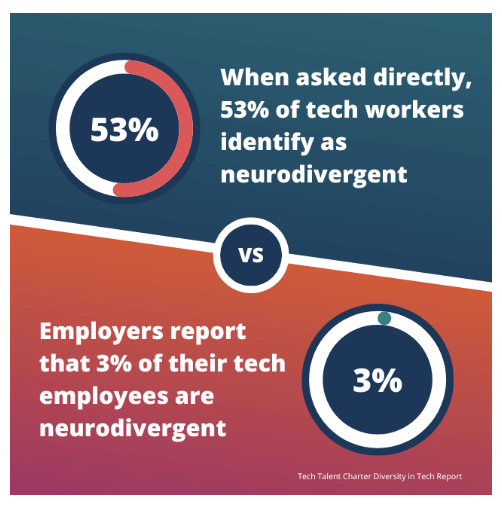Tech Talent Charter: 1 in 3 female tech workers want to leave
This is bad news for diverse talent pipelines, and shows how progress in diversity and inclusion since 2020 is being undermined, according to the Tech Talent Charter’s latest report.
Research Insights
Huge progress has been made in diversity in tech since 2020 - but it is at risk amid the 'culture wars' and a challenging economic environment.
Here are the stats to prove it.
But not all is lost - UNLEASH sat down with the Tech Talent Charter to get exclusive insight into how to successfully continue to push for investment in diversity and inclusion.
2020 was a eureka year for diversity and inclusion.
In the wake of the murder of George Floyd, and the resulting ‘Black Lives Matter’ protests, corporations across the world pledged to do better by under-represented employees (and their wider communities).
Fast forward four years, and, as noted by new research by the Tech Talent Charter, progress is stalling.
Not only are we living through a recession and severe economic challenges, but there’s a new political environment containing the so-called ‘culture wars’ – all of this means diversity and inclusion is under attack, and this includes from within organizations.
Diversity leaders are battling to keep their budgets (and their teams). Research by Revelio Labs, first published in the Washington Post, found that attrition rates for diversity and inclusion roles is almost double that of other roles.
As Lisa Simon, chief economist at Revelio Labs tells UNLEASH, this is particularly concerning as HR teams usually have low attrition.
Another worry is that Revelio Labs found a lot of this attrition comes from voluntary resignations – it is clear that people in diversity teams know that their work isn’t having the desired impact, and they are keen to look for alternative opportunities.
On the topic of attrition, central to why the Tech Talent Charter believes that diversity progress is stalling is because one in three women are planning to leave their job.

Credit: Tech Talent Charter.
There remains issues with the tech talent pipeline – while 29% of the 230,000 tech employees studied by the Tech Talent Charter identify as female or non-binary, women only make up 21% of senior roles in 2023.
This gap has grown one percentage point since last year’s study – the reason for continuing talent pipeline challenges is pay gap issues, and a lack of career progression.
Ethnic diversity in senior tech roles also dropped from one in four in 2022, to one in six in 2023. This is despite ethnic minority IT workers being more likely to be better qualified than their white colleagues.
Looking beyond gender and race, there are other worrying trends in disability and neurodiversity inclusion.
The Tech Talent Charter’s co-CEO Karen Blake shares with UNLEASH: “We are seeing huge challenges to accessibility of tech jobs with employers reporting just six percent of tech workers to be from the disabled working population of the UK.”
Neurodiversity is a fascinating new lens of interest where employers report just three percent of tech employees to be neurodivergent. We wanted to test this further so surveyed tech workers directly and found that actually more than half of tech workers identified as neurodivergent!”

Credit: Tech Talent Charter.
It’s time to take data-first action on diversity
Of course, it is not all doom and gloom.
While “the tech industry is still dominated by those who were born in the right place, with the right economic opportunities and the right networks”, in the words of Blake, there has been progress in socio-economic mobility in 2023.
She continues: “We are pleased to report that more than half of companies are now engaging with social mobility efforts.”
The situation is similar for neurodiversity.
“We are seeing huge recognition and interest from employers in neurodiversity in tech. The number of employers tracking neurodiversity in tech has risen hugely from 26% two years ago to 68% this year,” shares Blake.
Despite the wider political landscape, now is not the time for HR teams and organizations more widely to take their foot off the gas on diversity.
Talent shortages are ongoing, so tapping into broader talent pools is essential for global businesses.
Plus, all the evidence shows that diversity is good for business, as the Tech Talent Charter’s report stated: “Greater diversity in our teams leads to richer thinking, increased collaboration, more creative problem solving, greater innovation, and ultimately the success of our business.”
The Tech Talent Charter and Blake’s advice for HR leaders bearing the brunt of declining diversity budgets is to focus in on the data collection element.
Without accurate data, we can’t tell if we’re doing the right things to support under-represented groups and attract diverse talent” – this is the key way to making the business case to the higher ups that your investments are paying dividends.
Now is not the time to give up; you’ve made huge strides in the last few years, don’t let all of that go to waste.
Sign up to the UNLEASH Newsletter
Get the Editor’s picks of the week delivered straight to your inbox!

Chief Reporter
Allie is an award-winning business journalist and can be reached at alexandra@unleash.ai.
